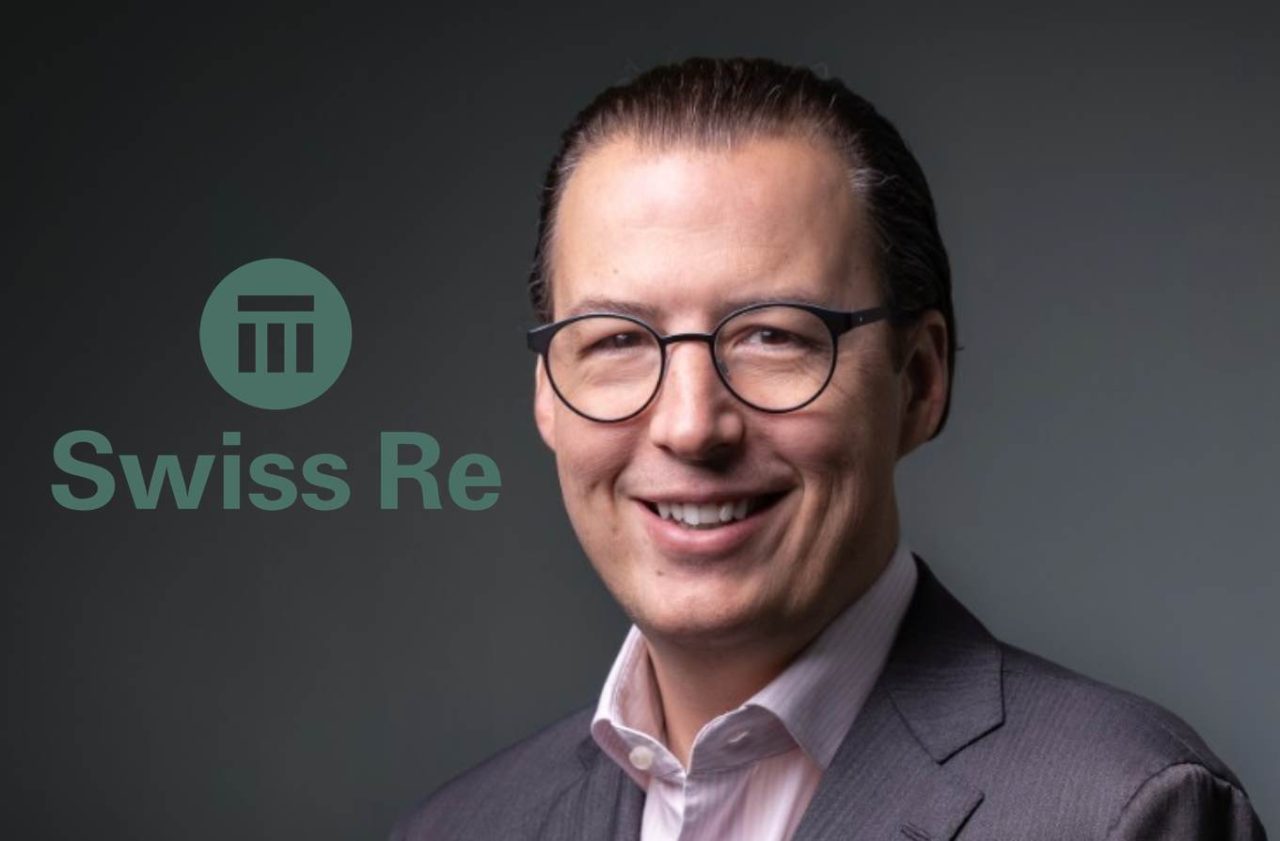Swiss Re targets both sidecar & ILS fund growth: Rüede

Global reinsurance firm Swiss Re has continued to expand its activities in insurance-linked securities (ILS) over the last year and Philipp Rüede, Head of Swiss Re’s Alternative Capital Partners (ACP) unit, explained to us that with now multiple access points available to investors, the company hopes to grow all its ILS strategies.
Of course, Swiss Re has been involved in insurance-linked securities (ILS) and the use of alternative capital in reinsurance for over two decades, but in the last few years the focus has become more apparent, as the global reinsurer launched new fund management initiatives aiming to allow new sources of ILS investor capital into its business.
Swiss Re now manages around $3.2 billion of investor capital across its range of investor access points, that include its reinsurance sidecar platform and flagship vehicle Sector Re, as well as its Swiss Re Insurance-Linked Investment Management Ltd. and more cat bond focused and recently launched Swiss Re Insurance-Linked Investment Advisors Corporation.
Swiss Re Insurance-Linked Investment Advisors Corporation (SRILIAC) has effectively opened up what was an internal cat bond and ILW portfolio to third-party investors for the first-time, rounding off Swiss Re’s offering to ILS investors as sidecars, the more collateralized reinsurance focused fund manager and now a more cat bond focused manager strategy.
Speaking with Philipp Rüede around the Monte Carlo Rendez-vous event, Artemis asked whether the new funds might become preferential vehicles for managing investor capital, but he said the sidecar remains core as well.
“We are happy with the overall progress of our sidecar and fund platform, and we expect to see growth in both areas over time,” Rüede told Artemis.
Adding that, “For Swiss Re it is not an “either or” choice. Instead, we believe that they appeal to different investor types and hence also expect to see certain fluctuations in growth year on year.
“Overall, we’re happy to be able to offer a suite of options to potential partners.”
Rüede acknowledged that the collateralised reinsurance sidecar market has not had the easiest of times, which we’ve seen as some reinsurers have shuttered sidecar vehicles after consecutive years of losses and poor performance, while others have shrunk considerably.
But Swiss Re continues to see that structure as an opportunity and one that suits a certain type of investor base.
Rüede told us, “Currently, the overall sidecar market is challenged. Nevertheless, we believe that especially in this environment, we were able to deliver strong returns and showcase that Swiss Re follows a partnership approach with a strong alignment of interest, allowing third-party investors to participate in our success.”
We asked Rüede about some of the highlights of the last year for Swiss Re’s Alternative Capital Partners (ACP) unit, which has a broad remit across managing vehicles and investor capital, structuring and selling ILS deals, as well as helping clients and the company itself access efficient sources of risk capital.
The capital management side has become increasingly important though and hence Swiss Re has continued to expand investor access points to enable them to share in its underwriting and investment prowess.
“The last twelve months have been very active for us at ACP with numerous important developments across our varied offering,” Rüede told Artemis.
Continuing, “As we continue to open new avenues of access to our ILS capabilities for institutional investors, we’ve reached two important milestones. First, our investment manager Swiss Re Insurance-Linked Investment Management Ltd (SRILIM) secured a substantial investment of USD 250 million from Swedish pension fund Alecta at year-end 2021. And second, we’ve officially launched our new investment advisory company Swiss Re Insurance-Linked Investment Advisors Corporation (SRILIAC) this August.
“We are excited that through these investment managers, investors can now access either Swiss Re’s core natural catastrophe book or the catastrophe bond market alongside Swiss Re.”
On top of this, Rüede highlighted initiatives such as Swiss Re’s groundbreaking hybrid bank financing and insurance-linked securities (ILS) backed whole account stop-loss transaction, which he said was a “first of its kind” and “supports Swiss Re’s growth opportunities in an attractive reinsurance market.”
On top of this, Swiss Re has been very active in the catastrophe bond market again.
“We have also brought over USD 500 million of new Matterhorn cat bond issuances to the market and placed five cat bonds, with a total notional of over USD 1.5 billion, on behalf of third-party clients,” Rüede said.
Adding that, “Two of these transactions were on behalf of new sponsors and so have helped to grow the overall cat bond market.”
Rüede sees the launch of the new cat bond fund management unit as a “natural next step” in the Swiss Re strategy, as the company looks to “expand the options for attractive investment partnerships with institutional investors.”
“The creation of the second investment advisor unit in the US was mostly a pragmatic decision driven by the location of the Swiss Re’s ILS investment platform and expertise, and by the capital raising prospects, given the focus on cat bonds,” he explained.
This new cat bond focused investment advisory, SRILIAC, may prove appealing to investors as Swiss Re already had a track-record for managing a more than $1 billion portfolio of cat bonds and industry-loss warranties (ILW’s) and so can demonstrate that portfolio’s performance over-time.
Rüede went on to explain that his business unit, Alternative Capital Partners (ACP), has a particularly broad-remit, when it comes to capital and the capital markets.
“As the name – Alternative Capital Partners – suggests, we focus on all partnerships that concern alternatives to our traditional capital.
“This goes beyond just ILS/AC in the classical sense. For each risk we try to find the best source of capital. This might be a bank, a traditional retrocession, the capital markets or institutional investors.
“However, regardless which source of capital the partnership element is always at the centre for us.
“We identify and choose the best source of capital based on the needs of our clients.
“We do not per se favour ILS but only choose this path if it makes sense for all involved parties and where ILS is more competitive compared with other sources of capital,” he explained.
The broadening access to third-party capital is not a drive of underwriting appetite or approach, Rüede told Artemis, as “we write our business independently of our hedging portfolio.”
But access to third-party capital brings clear benefits, beyond the fee income that Swiss Re is beginning to earn in greater volumes from these expanded ILS activities.
Rüede said that, “ACP’s ambition is to be the best integrated capital franchise. This implies being a highly relevant partner for our clients as well as offering a best-in-class alternative capital platform to our investors.
“Our Alternative Capital strategy enables us to grow our (re)insurance portfolio while proactively managing risk limits and capital associated with Group peak risks.
“Our strong platform with established partnerships helped us in a challenging traditional retro market.”
Read all of our interviews with ILS market and reinsurance sector professionals here.






